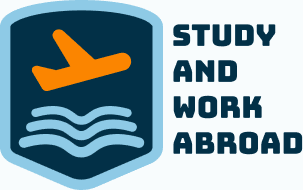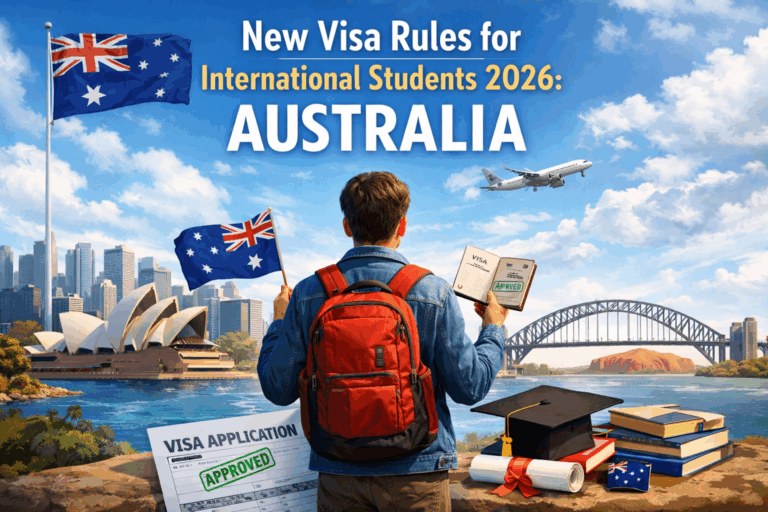Call Us:+91-9920234749, +91-9833420909 info@studyandworkabroad.in

How to Shortlist the Right University Based on Your Profile and Budget
Choosing the right university abroad is one of the most important steps in your study abroad journey. With countless programs and universities available in destinations like the UK, Australia, New Zealand, and Germany, finding one that fits your academic profile and financial situation can be challenging.
However, a strategic approach — backed by expert guidance from AVF Consultants — can make this process smoother and more effective. Let’s explore how you can shortlist universities that perfectly match your goals, background, and budget.
1. Start with Understanding Your Academic Profile
Before you begin your university search, take time to understand where you stand academically. Every country and university has its own entry requirements, so matching your profile with the right institutions is crucial.
Consider these key factors:
- Your percentage or GPA from previous studies
- Standardized test scores like IELTS, GRE, GMAT, or PTE
- Relevance of your previous course or specialization to your chosen field
- Any internships or projects that add value to your application
For example, universities such as the University of Bath (UK) or University of Otago (New Zealand) value not just academic scores but also relevant work experience and extracurricular achievements.
2. Define Your Career Goals Before Choosing a Course
Selecting a course without clarity about your career path can lead to confusion later. Be clear about what you want to achieve after graduation — do you plan to enter the workforce, pursue research, or settle abroad?
If your goal is long-term career growth, countries like the UK, Australia, and New Zealand offer excellent post-study work options:
- UK: 2-year Graduate Route post-study work visa
- Australia: Up to 4 years of Post-Study Work (PSW) rights
- New Zealand:
1–3 years of work visa depending on qualification
Shortlist universities that have strong industry connections and career placement support.
3. Match Your Budget with Realistic Study Options
Your study budget is a major factor when choosing a university. It’s not just about tuition fees — you must also consider living expenses, health insurance, travel, and miscellaneous costs.
Here’s a general overview of average yearly expenses:
| Country | Average Tuition Fees | Average Living Costs |
| UK | Rs 12–25 lakhs | Rs 10–15 lakhs |
| Australia | Rs 20-30 lakhs | Rs 10–18 lakhs |
| New Zealand | Rs 15–25 lakhs | Rs 9–14 lakhs |
| Germany | Rs 8-10 lakhs or no tuition (in public universities) | Rs 7–10 lakhs |
If your budget is limited, Germany and certain public universities in New Zealand offer high-quality education at affordable costs. Scholarships and bursaries can further ease financial pressure — something AVF Consultants helps students apply for.
4. Focus on Course Quality, Not Just University Ranking
Many students make the mistake of judging universities solely based on global rankings. While rankings are useful indicators, it’s more important to evaluate the specific course and its industry relevance.
When shortlisting, look at:
- The course curriculum and specialization areas
- Faculty expertise and teaching quality
- Availability of internships or research opportunities
- Graduate employability rate in that field
For instance, Durham University (UK) is highly regarded for business and finance programs, while Monash University (Australia) excels in technology and health sciences. Choosing a course that aligns with your interests and strengths will lead to better career outcomes.
5. Evaluate Scholarships and Financial Assistance
Scholarships can significantly reduce your total study costs. Each country offers a mix of university-funded and government-sponsored scholarships.
Some popular examples include:
- Chevening Scholarships (UK)
- Australia Awards Scholarships
- New Zealand Excellence Awards
- DAAD Scholarships (Germany)
At AVF Consultants, our counsellors help identify suitable scholarship options and guide students through application essays, references, and documentation to improve success rates.
6. Research the Location and Lifestyle
While academics are your main focus, your study destination’s lifestyle also matters. You’ll be living there for several years, so make sure you’re comfortable with the environment.
Consider:
- Weather and climate
- Safety and multicultural diversity
- Cost of accommodation and public transport
- Part-time job availability and local community support
Cities like Manchester, Melbourne, Auckland, and Berlin are known for being student-friendly and offering great quality of life.
7. Get Expert Guidance to Save Time and Avoid Mistakes
With so many factors to balance — from eligibility criteria to financial planning — professional counselling makes a real difference.
At AVF Consultants, we help students from Mumbai, Thane, and nearby areas by:
- Assessing their academic profile and study goals
- Shortlisting universities that match their budget and strengths
- Assisting with documentation, applications, and scholarships
- Providing visa guidance and pre-departure support
Our personalized approach ensures that every student applies to universities where they have the best chance of success.
8. Final Steps Before You Apply
Once you’ve shortlisted your target universities, follow these steps:
- Gather all academic transcripts and certificates.
- Prepare valid IELTS/PTE/GRE/GMAT scores.
- Draft a compelling Statement of Purpose (SOP).
- Get Letters of Recommendation (LORs) from professors or employers.
- Verify your financial documents for visa compliance.
- Apply to a mix of 2–3 dream, 2 target, and 1 safety university.
Conclusion
Shortlisting the right university abroad is not just about prestige — it’s about finding the ideal fit between your profile, career goals, and financial capacity. By taking a structured approach and seeking expert guidance from AVF Consultants, you can make confident decisions and maximize your chances of admission to top universities in the UK, Australia, New Zealand, or Germany.
Your dream university is within reach — you just need the right direction.
Frequently Asked Questions (FAQs)
1. How many universities should I apply to?
It’s best to apply to 4–5 universities: two ambitious, two moderate, and one safe option.
2. Can I get admission to a top university with average grades?
Yes. Many universities consider overall profiles, including your SOP, extracurriculars, and work experience — not just marks.
3. How can I find affordable study options abroad?
Our counsellors can help you identify low-cost universities, government-funded institutions, and scholarship opportunities.
4. What if I’m unsure about which country suits me best?
AVF Consultants provides country-specific counselling sessions to help you compare study opportunities in the UK, Australia, New Zealand, and Germany.
5. Does AVF Consultants offer visa support?
Yes. We provide complete end-to-end assistance — from university shortlisting to visa filing and pre-departure orientation.



